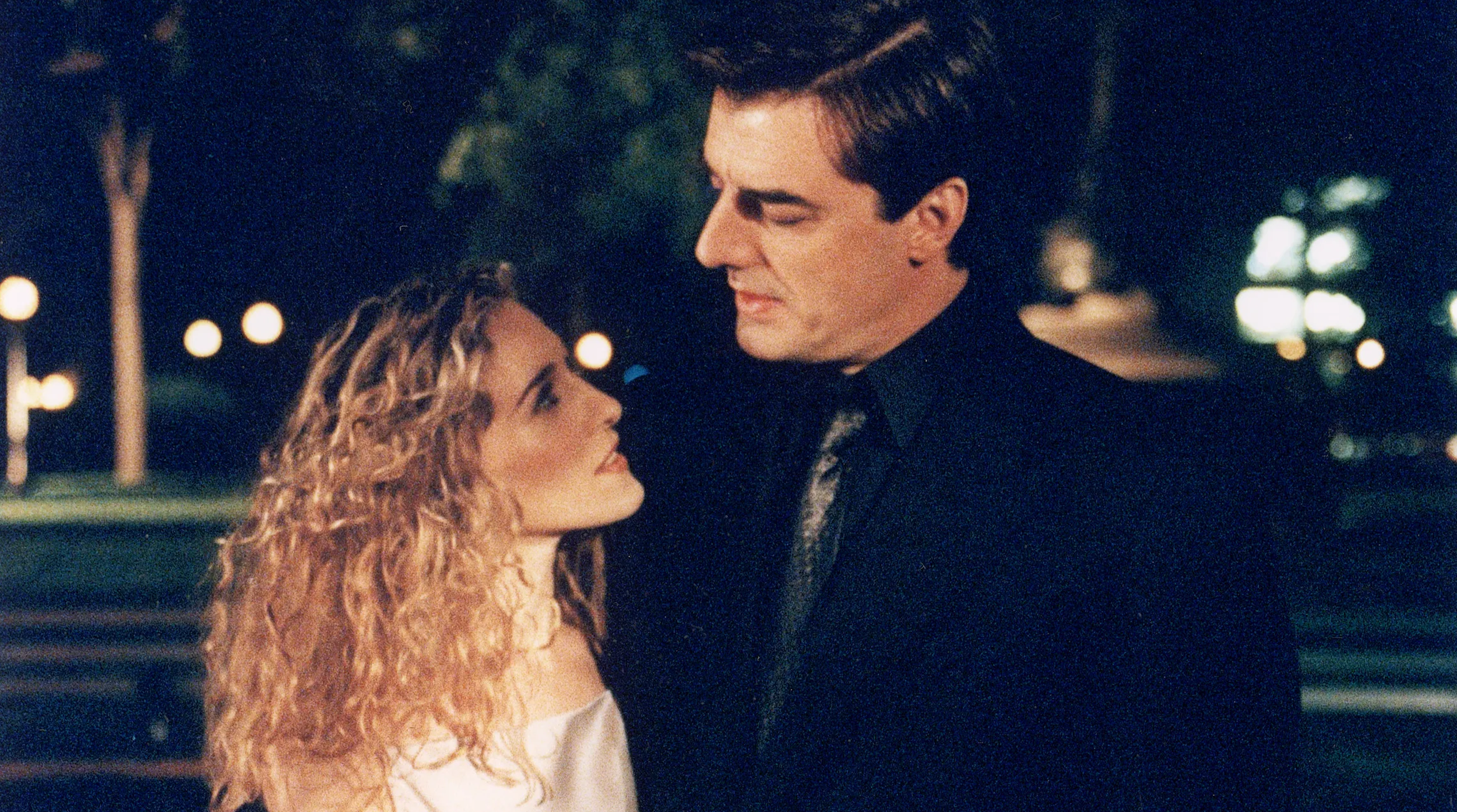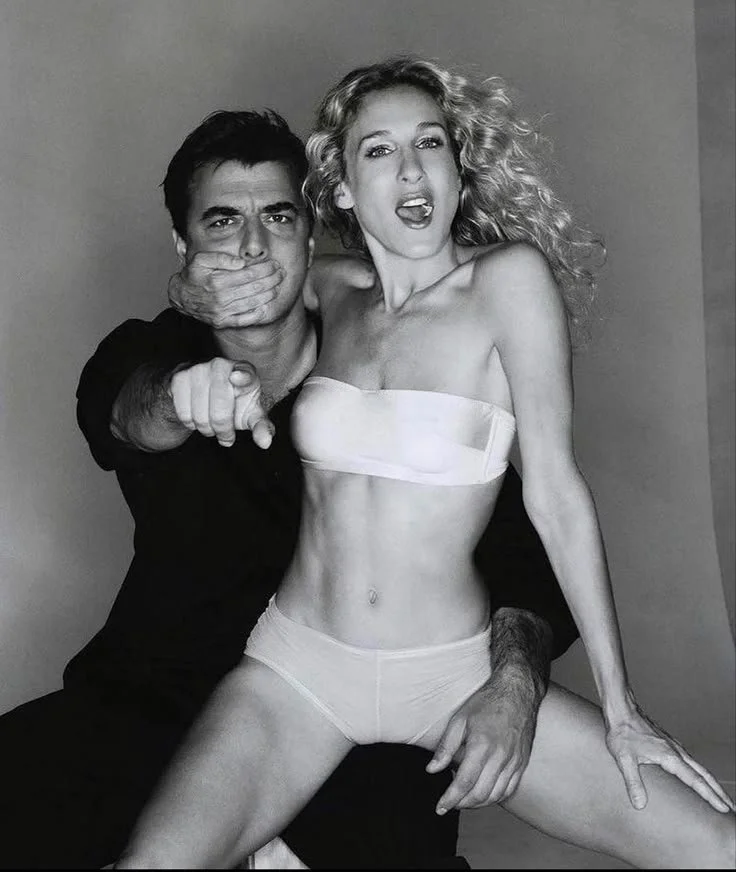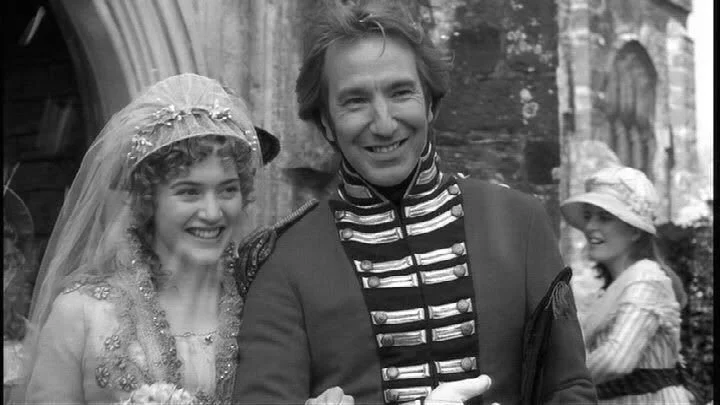Hot Losers and Handbags: How Media Warps Our Love Lives
It’s no surprise that, as a writer, I’m obsessed with TV characters who share my passion for beauty, culture, fashion, and politics. The outlier, the artist, the manic pixie, the social pariah, the Manolo Blahnik–wearing heroine. I’ve always related to them — their deep love for life, their wild, untenable curls, the Annie Andersons and Carrie Bradshaws of the world.
That being said, while deep in thought this morning about the political connotations of female archetypes, I couldn’t help but wonder (see what I did there?): why do these independent feminist characters always end up with a scumbag?
One of my biggest issues with popular culture is the way the media approaches romantic relationships, especially among young people. I find there’s a concerning trend in how romance is represented, both in fictional and reality TV. Don’t get me wrong — there are thousands of critiques I could offer about this strain of media, but to me, there are three main issues. These problems, I believe, are actively shifting the way young adults approach and perform in sexual and romantic relationships.
*Note: This article focuses on heterosexual relationships, as that’s been my personal experience. I plan to explore LGBTQ+ relationships in the media in a future piece — but I want to do that by first hearing directly from queer voices to better understand their perspectives.
1. The Commodification of Romance
It should be self-explanatory that $100 flower deliveries and designer shoes aren’t proof of how much your boyfriend loves you. But increasingly, on social media, in TV shows, and across pop culture, the “Good Guy” is portrayed as the one who won’t let you pay, has an endless supply of disposable income, and surprises you with your favorite new handbag.
There’s a supposed contrast to this “materialistic” love language — the soft, vintage-loving guy who picks you wildflowers, buys you rare books, or remembers your favorite candle from a local shop. But even that version still centers around buying. It may feel more meaningful, but it's just a different aesthetic of the same idea: love as consumption.
A friend of mine recently said she wants a man who will treat her like a princess — meaning someone who will invest in her financially, through paid-for dates and consistent gifts. I realize I’ve been somewhat exempt from this mindset. My family always encouraged homemade gifts and never put much emphasis on spending as a way to show love.
Of course, extravagant gestures have always existed in fiction. But now, they’re bleeding more and more into “real life.” One recent example is the “Boo Basket” trend on TikTok — where girlfriends expect elaborate, themed gift baskets from their boyfriends for Halloween. And while for some, occasional gift-giving is a genuine love language, the growing expectation that a boyfriend should consistently spend money to prove his feelings is damaging.
It puts pressure on men to prove their worth through spending, and on women to measure their value by how much someone is willing to invest in them. These standards aren’t just unrealistic — they turn real connection into performance and leave both sides feeling inadequate when love doesn’t look like a commercial.
At the end of the day, that’s the point: the media profits off our insecurity. They’re always selling something.
2. Media and Conflict Perception
There’s a saying I heard a couple of months ago about how conflict should be approached in relationships:
“Debate like scientists, not like lawyers.”
This saying perfectly captures what I believe is the most effective way to resolve conflict. When we say “debate like scientists,” we mean entering a discussion with an open mind, a hypothesis, curiosity, and facts. Being flexible—or rather, curious—in the face of disagreement is a testament not only to your emotional intelligence but also to your respect for your partner and your ability to dignify their emotions.
In contrast, “debate like lawyers” means fighting to win your side regardless of facts or the effect on the other person. This approach removes the space to grow together and instead fosters distrust and instability.
Media often portrays conflict this way—with over-the-top reactions, jealousy, and yelling between two closed-minded individuals. I believe this portrayal suggests that conflict equals passion and that the more explosive the fight, the stronger the love. These narratives distort how healthy relationships handle disagreements, normalizing emotional extremes and toxic patterns instead of communication and compromise.
This is especially true when it’s the “rational” character—the one portrayed as intelligent, deeply loving, and ideal. This makes me think of a character I believe gets overlooked in this aspect: Rory Gilmore. She’s widely regarded as rational and deeply intelligent, which offers an interesting perspective on this issue.
Because she’s seen as someone with good judgment, her relationship patterns and how she handles conflict feel especially influential and believable to viewers. When someone like Rory accepts or navigates conflict in ways that are sometimes passive, unresolved, or tied to emotional sacrifice, it subtly normalizes those behaviors. If she—the voice of reason—is involved in relationships where drama, unbalanced apologies, or silent tensions are common, it makes it easier for audiences to think, “Well, this must be normal or even healthy.”
I think this is especially concerning with social media platforms, where shocking content gets views like people encouraging others to punish their partners by ignoring them. These ideas continue to influence young people, often before they even enter their first relationship.
3. Toxic ≠ Passion
I love Sex and the City — like, I absolutely love it. And I definitely see myself in Carrie, both in her fashion and her taste in men. Before I found my absolute angel of a boyfriend, I had my fair share of toxic relationships — including a Mr. Big of my own. An emotionally unavailable, inconsiderate man who had me deep in the “IKEA effect,” convincing myself he was the one just because I’d invested so much into him. (Bar.)
While I’ll always love Sex and the City, I’ve been concerned ever since I really clocked just how awful Mr. Big was — and more importantly, that I would’ve totally fallen for him too. The media’s obsession with “hot losers” is getting out of hand. It sends the message that manipulation, jealousy, and emotional unavailability are just part of the process — or worse, signs of passion.
This is especially true with male characters. Their harmful behavior is often brushed off with a “boys will be boys” mindset or framed as mysterious, tragic, or romantic. The media constantly reinforces the idea that women should be the emotional caretakers — the ones who stay, support, and “heal” their partners — instead of expecting emotional maturity and respect from the start.
Chaos can be exciting. It can be hot. It can even be sexy. But it’s not sustainable. If Sex and the City teaches you anything, let it be this: there’s a reason Carrie and Big never work — and it’s not just because he moved to Paris.
These portrayals blur the line between love and harm, teaching young people that unhealthy relationships are normal — even desirable — as long as there’s an emotional payoff in the end. But in real life, love isn’t something you’re supposed to survive.
The reality is, the media will never change — because love pulls people in, and so does drama. And yes, it is fun. But my darlings, it’s not real life.
Personally I feel like as I have matured and learned I have moved past a lot of the “norms” handed to me by social media. My boyfriend doesn’t spend a huge amount of money on me. We split almost everything, and honestly, I appreciate that I can contribute too while we both save for the future. That doesn’t mean he doesn’t love me — it means it’s an unrealistic expectation for a uni student. What matters is that he always listens. I never feel unheard or disrespected. We rarely have conflicts because I can express when something bothers me, and it’s received with care and understanding.
Dating my own Colonel Brandon finally disconnected me from the deception that is Willoughby (Sense and Sensibility reference for my period piece girlies). For me, it took actively recognizing my patterns — including my own behavior and choices in men — and acknowledging and actively recognizing the negative patterns in media to get to where I am, and to accept love from the right people.
At the end of the day, media doesn’t just entertain us — it educates us, subtly shaping what we think love should look like. But real love? It’s quiet, kind, and stable — and that’s where the magic actually is.



